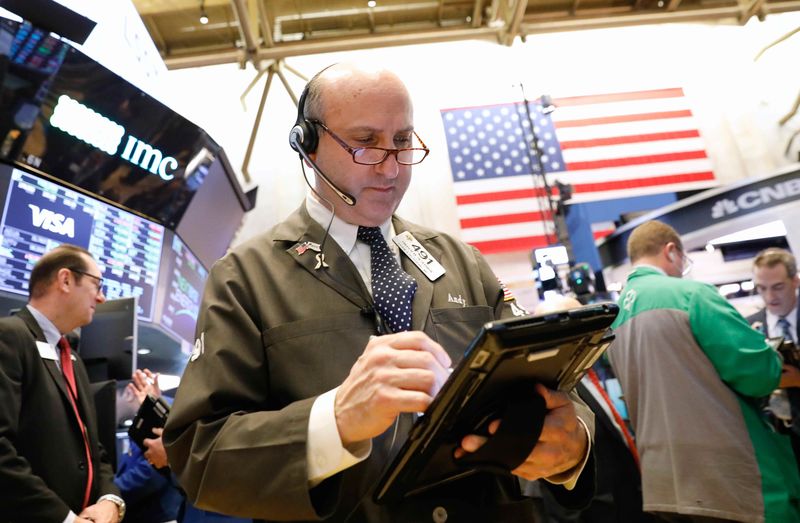By Laila Kearney
NEW YORK (Reuters) - U.S. President Donald Trump's move to cancel a planned June meeting with North Korean leader Kim Jong Un sent global share markets sharply lower on Thursday before they regained some footing, while auto stocks continued to decline on tariff fears.
Trump, in a letter to North Korea released by the White House, called off the June 12 summit, citing "tremendous anger and open hostility" in a recent statement by the East Asian country. The cancellation came even after North Korea followed through on a pledge to blow up tunnels at its nuclear test site.
As investors digested the latest development in the tumultuous U.S.-North Korea relationship, stocks sank, with the blue chip Dow Jones Industrial Average falling one percent, before cutting losses in afternoon trading.
On Wall Street, the Dow Jones Industrial Average (DJI) fell 72.77 points, or 0.29 percent, to 24,814.04, the S&P 500 (SPX) lost 4.87 points, or 0.18 percent, to 2,728.42 and the Nasdaq Composite (IXIC) added 1.01 points, or 0.01 percent, to 7,426.96.
MSCI's gauge of stocks across the globe (MIWD00000PUS) shed 0.17 percent, while the pan-European FTSEurofirst 300 index (FTEU3) lost 0.63 percent.
As the latest U.S.-North Korea concerns boosted investor appetite for low-risk debt, U.S. 10-year Treasury yields fell to a session low of 2.97 percent.
Gold prices were propelled above $1,300 per ounce on apparently rising tensions between Trump and Kim.
Spot gold
Meanwhile, some investors interpreted Trump's message with caution.
"The market is expressing its disappointment, but this is a short-term tantrum," said Michael Antonelli, managing director of institutional sales trading at Robert W. Baird in Milwaukee.
AUTOS
Markets had plenty more to digest, including minutes from the latest Fed and ECB meetings, but in Asian and European trading, it was U.S. plans to investigate auto imports that caused the biggest moves.
"What we are seeing is a little more broad. We are at the mercy of the (Trump) administration, not just on North Korea but on trade with the auto tariffs being announced," Liz Ann Sonders, chief investment strategist at Charles Schwab (NYSE:SCHW) & Co in New York.
Trump on Wednesday ordered a national security probe into car and truck imports that could lead to new tariffs, with China calling the move an "abuse" of the clauses and saying it would defend its interests.
Japan's Nikkei (N225) ended down 1.1 percent after Nissan, Mazda and Toyota all fell (T).
In Europe, German carmakers Daimler (DE:DAIGn), BMW (DE:BMWG) and Volkswagen (DE:VOWG_p) dropped 1.7 to 2.8 percent.
Germany's benchmark DAX index (GDAXI) fell 0.9 percent and Europe's autos sector (SXAP) was the worst-performing, losing 1.8 percent.
In the currency markets, Turkey's lira remained the big mover. It weakened to beyond 4.79 against the dollar, surrendering most of the gains it made a day earlier after the Turkish central bank jacked up its key interest rate by 300 basis points to prop up the plunging currency. Investors appeared to bet another hike would be needed to relieve the selloff.
The dollar fell against a basket of currencies (DXY) and hit a two-week low against the Japanese yen, after the U.S.-North Korea meeting was nixed.
Oil prices recorded their largest one-day drop in two weeks amid expectations OPEC could wind down an output deal that has been in place since the start of 2017 due to concerns about supplies from Venezuela and Iran.

U.S. crude